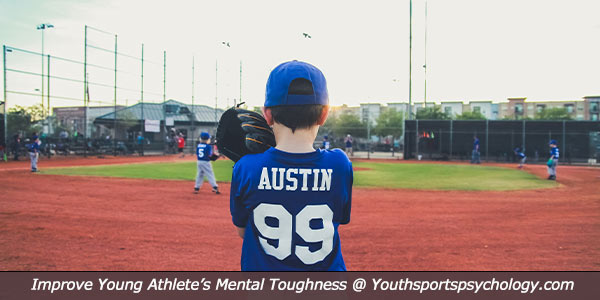Get Kids Moving to Avoid Obesity and Sickness
To ensure both their physical and mental health, kids need to get exercise and take part in outdoor play, says Dr. Dan O’Neill, an orthopedic surgeon, sports psychologist and author of “Survival of the Fit.”
Twenty percent of kids are obese, and develop ailments such as diabetes, pre-diabetes and high cholesterol due to lack of exercise, he says. They’re also suffering from anxiety and depression. These are adult ailments, and kids are getting them at young ages.
How can sports parents ensure their kids are healthy, confident and enjoy the benefits of sports?
O’Neill blames screen time and processed foods for the problems with kids’ health. In general, children and teens spend too much time on the couch looking at screens or playing video games. And processed foods undermine their health, he says.
Especially during the pandemic, when kids are not participating in sports, it’s okay to insist that they get some exercise, preferably outside, says O’Neill. They can walk, hike, bike, ski, skate or just play outside, he says. This improves both their physical and mental health.
Kids Should Work on Mental and Physical Skills During the Pandemic
Here at the Ultimate Sports Parent, we also recommend that during the pandemic, parents encourage kids to work on their mental and physical skills in preparation for playing sports again. They can set mental and physical goals and work on them outside or at home.
For example, they can focus on building their strength or they can concentrate on boosting their confidence.
Parents who are worried about the trend toward obesity and sickness can encourage kids to participate in sports. But O’Neill cautions that parents should do this in a way that ensures athletes enjoy sports, build their confidence and stay in sports for the long haul. He notes that 75% of kids drop out of sports by the time they’re about 14.
“Sports parents, you folks have to be careful that you don’t beat your kids out of their athletic identity. Kids drop out because of parents and coaches who mean well but are driving kids out of having fun.”
O’Neill thinks that sports would be more rewarding for young athletes if teams were not associated with schools. Instead, he suggests that they be community-based.
“So many things in our schools have been tainted on a lot of levels by sports. We see an ‘athlete and non athlete’ divide in kids.” Kids who don’t make organized teams don’t have many options for physical activity at their schools beyond organized sports. “A big part of the school budget goes to organized sports,” he says.
That money should go instead to providing physical education programs so that more students can be active. That might include bike teams, winter sports, surfing, kayaking and swimming, among other activities, he says. It will also help kids in lower income families find ways to get moving.
In addition, O’Neill believes that kids should just spend time playing pick up games, organizing themselves. “They learn cooperation and flexibility and so much about themselves. They need to do it on their own. That’s how they become cooperative adults,” he says.
By following O’Neill’s suggestions, parents can help their kids avoid the obesity trap, stay in sports for the long haul–and reap its many benefits.
Listen to the Ultimate Sports Parent Podcast
Related Articles on Kids’ Mental Game:
- Addressing Anxiety, Mistakes and Low Confidence in Youth Sports
- Finding Balance To Reduce Sports Pressure
- Signs of Performance Anxiety in Young Athletes
*Subscribe to The Sports Psychology Podcast on iTunes
*Subscribe to The Sports Psychology Podcast on Spotify
The Composed Sports Kid

“The Composed Sports Kid” audio and workbook digital download program for young athletes and their parents or coach helps kids cope with frustration and anger in sports. Help your sports kids learn how to manage expectations and let go of mistakes so they can keep their head in the game.
The Composed Sports Kid system is really two programs in one–one program to train parents and coaches how to help their kids practice composure, and one program that teaches young athletes–ages 6 to 13–how to improve composure, let go of mistakes quickly, have more self-acceptance, and thus enjoy sports more!

